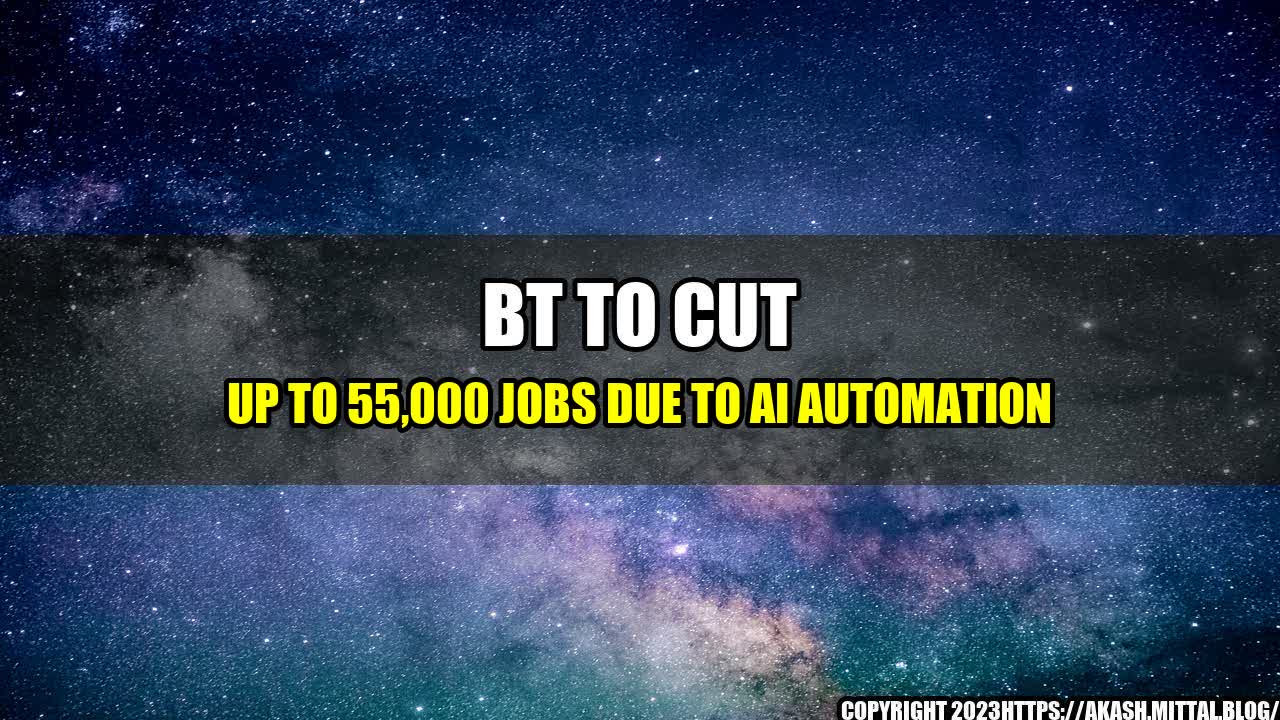In the coming years, the world of work is set to change dramatically. According to recent reports, BT Group, the UK's largest telecoms company, is set to cut up to 55,000 jobs due to the rise of AI automation and the digitalization of the workplace.
As technology rapidly advances, organizations are looking for new ways to streamline operations, cut costs, and boost productivity. While the rise of AI automation has led to many benefits, it has also brought with it a number of challenges—including the displacement of human workers.
The Impact of AI Automation on Jobs
According to a recent report by the McKinsey Global Institute, AI automation could displace up to 800 million jobs by 2030. This is a staggering number, and it highlights the serious implications of this technology for the future of work.
One of the main areas of concern is the loss of jobs in traditional industries such as manufacturing, retail, and transportation. With AI robots becoming increasingly sophisticated, more and more labor-intensive tasks are being automated, leaving many workers without a job.
What can Workers do to Prepare for the Future?
While the future of work may seem bleak, there are steps that workers can take to future-proof their careers. One important strategy is to develop skills that are complementary to AI automation—such as problem-solving, critical thinking, and creativity. These skills are highly valued in the digital age, and they are less likely to be automated than routine, repetitive tasks.
Another important consideration is to keep up-to-date with the latest trends and technologies in your industry. Attend conferences, read industry publications, and network with other professionals in your field. By staying informed and connected, you can position yourself as a thought leader and remain ahead of the curve.
The Benefits of AI Automation
While the rise of AI automation may be unsettling for workers, it also has the potential to bring many benefits. For one, it can lead to greater efficiency and cost savings for organizations. It can also enable new opportunities for innovation and growth.
Take the healthcare industry, for example. With the rise of AI automation, doctors and nurses can spend less time on administrative tasks and more time on patient care. This can lead to better outcomes and a higher quality of care for patients. Similarly, in the financial industry, AI can help detect fraudulent transactions and reduce the risk of financial crime.
In Conclusion
- The rise of AI automation is set to change the world of work, and it is important for workers to prepare for this change by developing complementary skills and staying informed about the latest trends and technologies in their industry.
- While the displacement of human workers is a concern, AI automation also has the potential to bring many benefits—including greater efficiency, cost savings, and new opportunities for innovation and growth.
- Ultimately, the key to success in the digital age is to remain adaptable, flexible, and forward-thinking. By embracing change and staying ahead of the curve, workers can position themselves for success in the years to come.

Curated by Team Akash.Mittal.Blog
Share on Twitter Share on LinkedIn